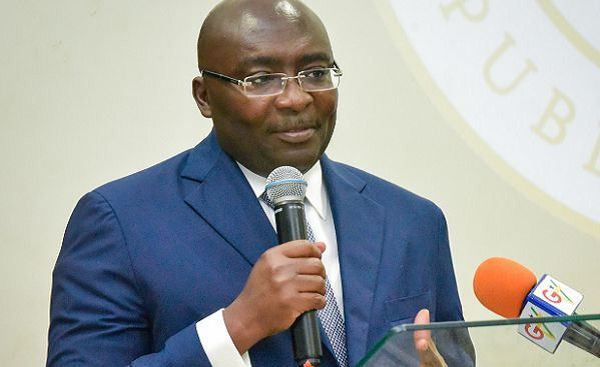Vice President Dr. Mahamudu Bawumia
Vice President Dr. Mahamudu Bawumia has explained that the ongoing war between Ukraine and Russia is directly affecting Ghana.
According to him, “The increase in commodity prices has been exacerbated by the Russia-Ukraine conflict. Russia and Ukraine together account for 30 percent of the global wheat export. The longer the conflict the greater will be the disruptions to the global food supply. The country is also likely to slow global growth’’.
Speaking at the TESCON organised forum on the economy Thursday, he explained “Russia accounts for some 30 percent of Ghana’s imported grains, 50 percent of flour, and 39 percent of fertilizer. So we are directly affected by the Russia-Ukraine war. Unfortunately, we do not know when it will be over. The global increase in fuel prices is causing hardship.”
He continued that “According to the AfDB the price of wheat has shot up by 62 percent since the war begun. The price of fertilizer is up by 300 percent, and the price of maize is up by 36 percent since the war begun. Here in Ghana, 60 percent of our total imports of iron ore and steel are from Ukraine.
He further said he recognizes that the country is going through some challenges at the moment, adding that “The economy is what we feel in our pockets. I acknowledge that we are going through difficult times, this is the reality. Our economy is experiencing rising prices of fuel and virtually all commodities. Prices are on the rise.”
He further noted that “These have come at a surprise to many Ghanaians and many questions have been asked about the state of the economy. Do these questions include what has happened to the fundamentals? Why are the prices of goods and services increasing so fast? Why has the Cedi depreciated so fast this year?
“What programs does the government have to show for the higher debt? Where is the new economy that the government promised to build? I will address these questions based on data and facts.
“I will admit where there have been challenges and we will all leave here with a better state of the economy, where we have come from, and where we are going.”
–BY Daniel Bampoe


